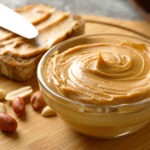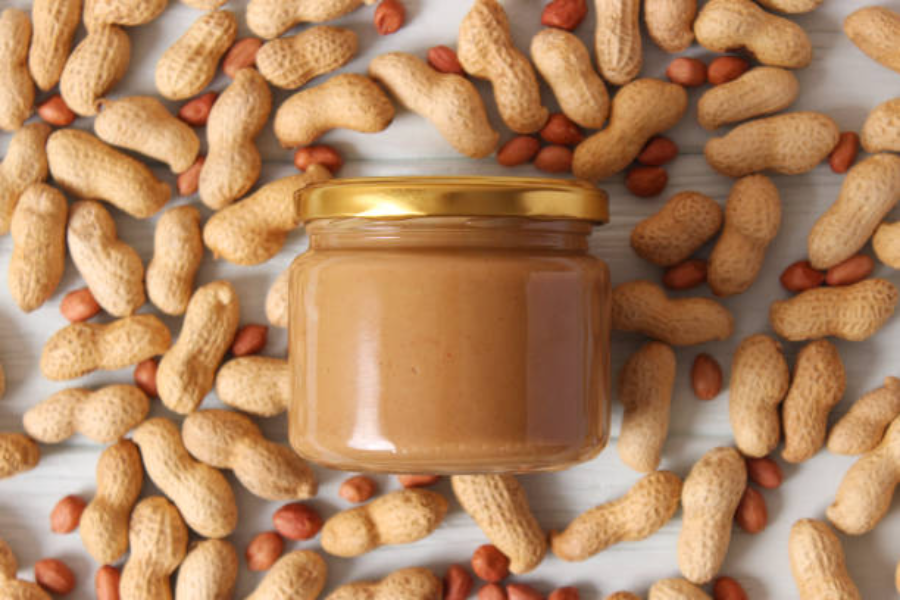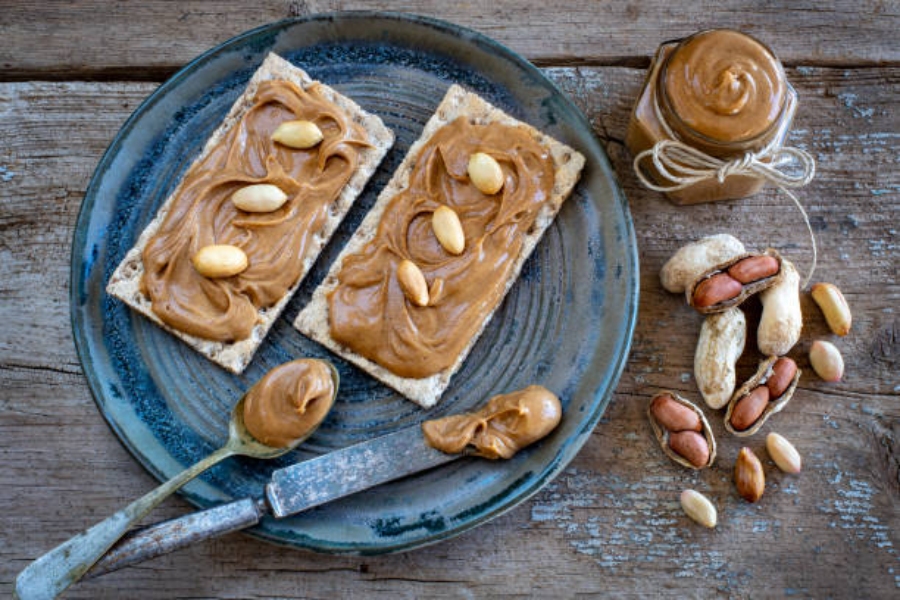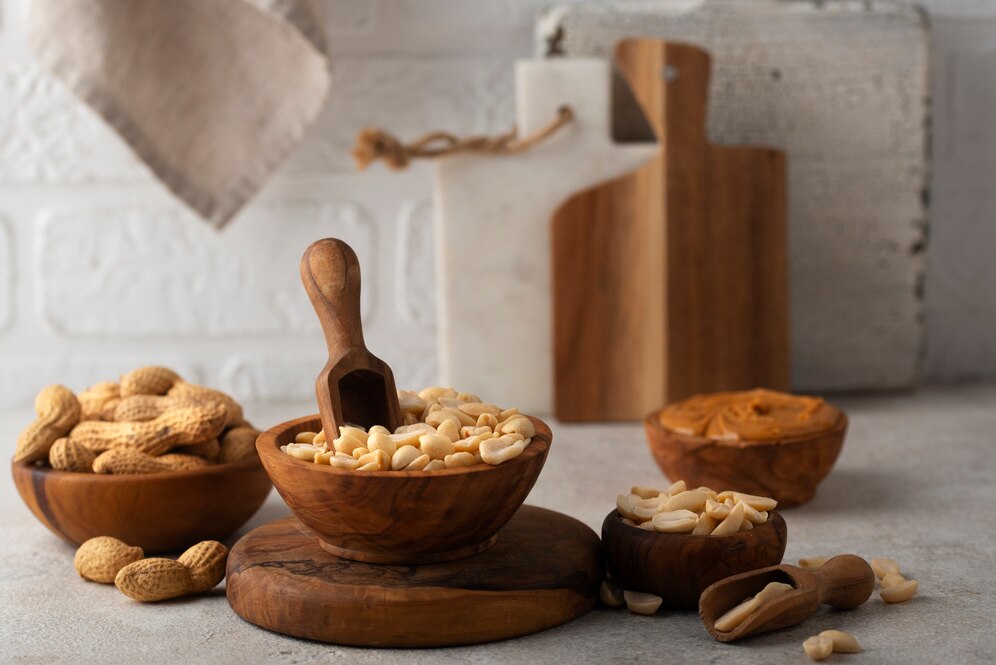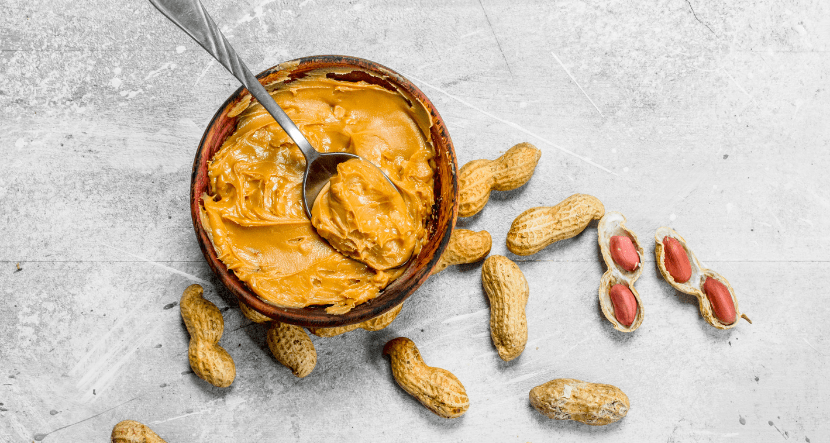
Peanut Butter for Weight Loss – Myth or Reality?
Peanut butter has long been a favourite spread for sandwiches and a versatile ingredient in many recipes. But can it be a secret weapon in your weight loss journey? In recent years, there has been a growing buzz about the potential benefits of peanut butter for weight loss. In this blog, we will delve into the facts, backed by data and credible sources, to determine whether peanut butter is a myth or a reality when it comes to shedding those extra pounds.
The Nutritional Profile of Peanut Butter
Before we dive into the weight loss aspect, it’s essential to understand the nutritional content of peanut butter. A typical 2-tablespoon (32-gram) serving of peanut butter contains:
- Calories: 190
- Protein: 7 grams
- Fat: 16 grams (mostly monounsaturated and polyunsaturated fats)
- Carbohydrates: 6 grams
- Fibre: 2 grams
- Sugars: 3 grams
- Vitamins and Minerals: Peanut butter is rich in various vitamins and minerals, including vitamin E, magnesium, potassium, and niacin.
(Source: United States Department of Agriculture (USDA) Food Database)
The Myth: Peanut Butter Causes Weight Gain
There’s a common misconception that peanut butter leads to weight gain due to its high calorie and fat content. However, this view overlooks the fact that not all calories are created equal, and not all fats are harmful. The fats in peanut butter are predominantly heart-healthy monounsaturated and polyunsaturated fats, which can support weight loss when consumed in moderation.
Reality: Peanut Butter as a Weight Loss Ally
1. Satiety Factor
One of the key factors that make peanut butter a potential ally in weight loss is its ability to promote satiety. A study published in the “Nutrition Journal” found that participants who included peanut butter in their breakfast reported feeling fuller for a longer duration, reducing the likelihood of snacking between meals.
(Source: Mattes, R.D., Kris-Etherton, P.M., & Foster, G.D. (2008). Impact of Peanuts and Tree Nuts on Body Weight and Healthy Weight Loss in Adults. Nutrition Journal, 7, 21.)
2. Protein Content
Peanut butter is a good source of plant-based protein, with approximately 7 grams per serving. Protein plays a vital role in maintaining and building lean muscle mass, which can boost your metabolism and help you burn more calories throughout the day.
3. Healthy Fats
As mentioned earlier, the fats in peanut butter are predominantly unsaturated. These fats have been linked to various health benefits, including improved heart health and reduced inflammation, which can support an overall healthy lifestyle conducive to weight loss.
4. Fibre Content
Peanut butter also contains fibre, which aids in digestion and helps control hunger. Fibre-rich foods can keep you feeling full and satisfied, reducing the temptation to overeat.
Why Peanut Butter Is Nutritious and Healthy?
Peanut butter isn’t just delicious; it’s also loaded with necessary nutrients. A powerhouse of protein, healthy fats, and digestible fiber, it provides sustained energy and helps continue a feeling of fullness. Moreover, peanut butter is rich in vitamins and minerals like E, magnesium, and potassium, which promote various bodily functions. However, self-discipline is vital due to its calorie density, but its nutrient density makes it an exceptional addition to a healthy diet.
The Importance of Portion Control
While peanut butter can be a valuable addition to a weight loss plan, it’s crucial to exercise portion control. Consuming peanut butter in moderation is key to reaping its benefits without going overboard on calories. Stick to the recommended serving size of 2 tablespoons, which provides a balance of nutrients without excessive calorie intake.
Choosing the Right Peanut Butter
Not all peanut butter is created equal. To make the most of peanut butter’s potential benefits for weight loss, opt for varieties that have minimal added sugars and unhealthy fats. Look for natural peanut butter with no added sugars or hydrogenated oils. These healthier options maintain the integrity of the nuts and their nutritional value.
Practical Tips for Incorporating Peanut Butter into Your Diet
-
- Pair peanut butter with whole-grain bread or crackers for a filling and balanced snack.
- Add a spoonful of peanut butter to your morning oatmeal or yoghurt to increase the protein and flavour content.
- Use peanut butter as a base for homemade salad dressings or dipping sauces to add depth and creaminess.
- Incorporate peanut butter into smoothies with fruits and vegetables for a nutrient-packed meal replacement.
- Enjoy peanut butter in moderation as a part of a balanced diet that includes a variety of fruits, vegetables, lean proteins, and whole grains.
In the debate of “Peanut Butter for Weight Loss – Myth or Reality?” The evidence strongly supports the reality. Peanut butter, when consumed mindfully and in appropriate portions, can be a valuable addition to a weight loss journey. Its protein, healthy fats, and fibre content make it a satiating and nutrient-dense choice.
However, like any food, moderation is key. To make the most of peanut butter’s benefits, choose natural, unsweetened varieties and incorporate them into a balanced diet.
Remember that weight loss is a complex journey influenced by multiple factors, including overall diet, physical activity, and individual metabolism.
While peanut butter can be a helpful tool, it should be part of a comprehensive plan aimed at achieving and maintaining a healthy weight.
Before making significant changes to your diet, it’s advisable to consult with a healthcare professional or registered dietitian who can provide personalised guidance tailored to your specific needs and goals.
In the end, peanut butter can indeed be a reality in your weight loss journey, provided you approach it with knowledge and moderation.




